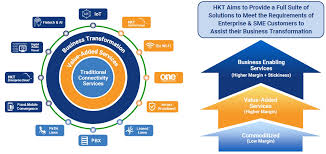The Importance of Quality Services in Today’s Business Landscape
In the fast-paced and competitive world of business, the quality of services provided can make a significant impact on the success and reputation of a company. Whether it’s in the realm of technology, healthcare, finance, or any other industry, offering exceptional services is key to attracting and retaining customers.
Meeting Customer Needs
One of the primary reasons why services play a crucial role in business is their ability to meet customer needs effectively. By understanding what customers require and delivering services that address those needs efficiently, companies can build loyalty and trust among their clientele.
Enhancing Customer Experience
Quality services also contribute to enhancing the overall customer experience. Whether it’s through personalized interactions, prompt responses to queries, or seamless service delivery, businesses that prioritize service excellence create positive experiences that keep customers coming back.
Building Reputation and Credibility
A company known for its high-quality services automatically builds a strong reputation in the market. Positive word-of-mouth recommendations from satisfied customers can significantly boost a company’s credibility and attract new business opportunities.
Driving Business Growth
Ultimately, investing in quality services can drive business growth by differentiating a company from its competitors and positioning it as a leader in its field. By consistently delivering exceptional services, businesses can not only retain existing customers but also attract new ones through their reputation for excellence.
Conclusion
In conclusion, the importance of quality services cannot be overstated in today’s business landscape. Companies that prioritize service excellence are better positioned to meet customer needs, enhance customer experience, build reputation and credibility, and ultimately drive sustainable business growth.
9 Key Benefits of Exceptional Services: Elevate Satisfaction, Loyalty, and Growth
- Enhance customer satisfaction
- Build trust and loyalty
- Differentiate from competitors
- Improve brand reputation
- Increase customer retention
- Drive business growth
- Enable personalized experiences
- Boost word-of-mouth referrals
- Support overall customer success
7 Service Challenges That Could Impact Your Business Success
- Inconsistent service quality may lead to customer dissatisfaction.
- Poorly trained staff can result in subpar service delivery.
- Service interruptions or downtime can disrupt business operations.
- High service costs may strain the company’s budget.
- Limited service offerings may not meet diverse customer needs.
- Difficulty in scaling services to accommodate business growth.
- Negative reviews or feedback can damage the company’s reputation.
Enhance customer satisfaction
Enhancing customer satisfaction is a crucial benefit of quality services. By consistently meeting and exceeding customer expectations, businesses can build strong relationships with their clientele, leading to increased loyalty and positive word-of-mouth referrals. When customers feel satisfied with the services they receive, they are more likely to remain loyal to the brand, resulting in long-term sustainability and growth for the business. Prioritizing customer satisfaction through excellent services can set a company apart from its competitors and create a loyal customer base that drives success.
Build trust and loyalty
Building trust and loyalty is a significant benefit of quality services. When businesses consistently deliver exceptional services that meet or exceed customer expectations, they establish a strong foundation of trust with their clientele. This trust forms the basis for long-term relationships, as satisfied customers are more likely to remain loyal and continue to choose the company for their needs. By prioritizing service excellence, businesses can cultivate a loyal customer base that not only generates repeat business but also serves as advocates for the brand, further enhancing its reputation and credibility in the market.
Differentiate from competitors
In today’s highly competitive business environment, one of the key advantages of offering quality services is the ability to differentiate from competitors. By providing exceptional and unique services that stand out in the market, a company can set itself apart from its rivals and attract customers who value excellence and innovation. This differentiation not only helps in capturing the attention of potential clients but also fosters brand loyalty and long-term relationships by showcasing a commitment to delivering superior value and experiences.
Improve brand reputation
Enhancing brand reputation is a significant benefit of quality services. By consistently delivering exceptional services that meet or exceed customer expectations, a company can build a positive reputation in the market. A strong brand reputation not only fosters trust and loyalty among existing customers but also attracts new customers who are drawn to the company’s commitment to excellence. Ultimately, a reputable brand can differentiate itself from competitors, establish credibility in the industry, and create long-term value for the business.
Increase customer retention
Increasing customer retention is a significant benefit of offering quality services. By consistently meeting and exceeding customer expectations, businesses can foster loyalty among their clientele, encouraging them to return for future purchases or engagements. Satisfied customers are more likely to become repeat customers, leading to higher retention rates and long-term relationships that are mutually beneficial for both the business and the customer. Additionally, loyal customers often serve as brand advocates, promoting the company to others and contributing to its growth through positive word-of-mouth recommendations.
Drive business growth
Investing in quality services has the potential to drive significant business growth by setting a company apart from its competitors and establishing it as a leader in the industry. By consistently delivering exceptional services that meet and exceed customer expectations, businesses can not only retain existing clients but also attract new ones through positive word-of-mouth recommendations and a reputation for excellence. This growth trajectory is fueled by the trust and loyalty that high-quality services cultivate among customers, ultimately leading to increased revenue, market share expansion, and long-term sustainability.
Enable personalized experiences
One significant advantage of quality services is their ability to enable personalized experiences for customers. By tailoring services to meet individual needs and preferences, businesses can create unique and memorable interactions that resonate with their clientele. Personalization not only enhances customer satisfaction but also fosters loyalty and long-term relationships. Ultimately, the ability to provide personalized experiences sets businesses apart in a crowded marketplace and positions them as trusted partners who truly understand and care for their customers.
Boost word-of-mouth referrals
Providing high-quality services can significantly boost word-of-mouth referrals for a business. When customers have positive experiences with a company’s services, they are more likely to share their satisfaction with others in their network. Positive word-of-mouth referrals not only enhance the company’s reputation but also serve as a powerful marketing tool, as personal recommendations from satisfied customers carry a great deal of credibility and influence in attracting new clients. By consistently delivering exceptional services, businesses can cultivate a strong base of loyal customers who become brand advocates and help drive organic growth through positive referrals.
Support overall customer success
Providing excellent services goes beyond meeting immediate customer needs; it also plays a crucial role in supporting overall customer success. By offering reliable support, timely assistance, and tailored solutions, businesses can empower their customers to achieve their goals and objectives effectively. A strong focus on service quality not only enhances the customer experience but also contributes to building long-lasting relationships that are essential for sustained success and mutual growth.
Inconsistent service quality may lead to customer dissatisfaction.
Inconsistent service quality poses a significant con for businesses as it can result in customer dissatisfaction. When customers experience varying levels of service quality, it can lead to confusion, frustration, and ultimately erode trust in the brand. Customers expect reliability and consistency in the services they receive, and any deviation from expected standards can have a negative impact on their overall satisfaction. Businesses must strive to maintain a high level of service consistency to retain customer loyalty and uphold their reputation in the market.
Poorly trained staff can result in subpar service delivery.
When staff members are inadequately trained, it can lead to subpar service delivery that ultimately impacts the customer experience. Poor training may result in employees lacking the necessary skills and knowledge to effectively address customer needs, leading to frustration and dissatisfaction among clients. Additionally, poorly trained staff may struggle to uphold company standards and values, compromising the overall quality of services rendered. Investing in comprehensive training programs is essential to ensure that employees are equipped to deliver exceptional service that meets or exceeds customer expectations.
Service interruptions or downtime can disrupt business operations.
Service interruptions or downtime can be a significant con of services for businesses as they have the potential to disrupt business operations and impact productivity. When services are unavailable or experience downtime, it can lead to delays in tasks, communication breakdowns, and ultimately result in financial losses. Businesses rely heavily on uninterrupted services to maintain smooth operations, and any disruptions can hinder their ability to serve customers efficiently and meet deadlines. Therefore, mitigating the risk of service interruptions is crucial for ensuring continuity and reliability in today’s fast-paced business environment.
High service costs may strain the company’s budget.
High service costs can pose a significant challenge for companies, potentially straining their budget and financial resources. When service expenses exceed the allocated budget, it can impact the company’s profitability and overall financial health. This strain may force businesses to make tough decisions such as cutting back on other essential areas or increasing prices for their products or services, which could potentially alienate customers. Finding a balance between offering quality services and managing costs effectively is crucial for ensuring long-term sustainability and success in today’s competitive business environment.
Limited service offerings may not meet diverse customer needs.
Limited service offerings can be a significant drawback as they may fail to cater to the diverse needs of customers. When a company offers only a narrow range of services, it runs the risk of alienating potential clients who require specialized or varied solutions. Customers today expect flexibility and customization in the services they receive, and a lack of diverse offerings can result in missed opportunities and dissatisfied customers seeking alternatives elsewhere. To truly meet the demands of a diverse customer base, businesses must ensure that their service portfolio is robust and adaptable to different requirements.
Difficulty in scaling services to accommodate business growth.
One significant challenge that businesses face in the realm of services is the difficulty in scaling their offerings to accommodate rapid business growth. As companies expand and attract more customers, maintaining the same level of quality and efficiency in service delivery becomes increasingly complex. Issues such as resource constraints, operational bottlenecks, and maintaining consistency across a larger customer base can hinder the seamless scalability of services. Without careful planning and strategic adjustments, businesses may struggle to meet the escalating demands while ensuring that their services remain reliable and effective throughout periods of growth.
Negative reviews or feedback can damage the company’s reputation.
Negative reviews or feedback can significantly damage a company’s reputation in the eyes of current and potential customers. In today’s digital age, where online reviews and feedback hold considerable influence, a few negative comments can spread quickly and impact consumer perception. Customers often rely on reviews to make informed decisions about which businesses to engage with, and a string of unfavorable feedback can erode trust and deter prospective clients. It is crucial for companies to address negative reviews promptly, demonstrate transparency in handling feedback, and strive to rectify any issues to safeguard their reputation in the competitive market landscape.



